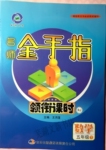题目内容
The drug can’t cure your disease at all. It can provide only relief from pain.
A. temporary B. technical C. thorough D. tight
练习册系列答案
 名师金手指领衔课时系列答案
名师金手指领衔课时系列答案
相关题目
题目内容
The drug can’t cure your disease at all. It can provide only relief from pain.
A. temporary B. technical C. thorough D. tight
 名师金手指领衔课时系列答案
名师金手指领衔课时系列答案